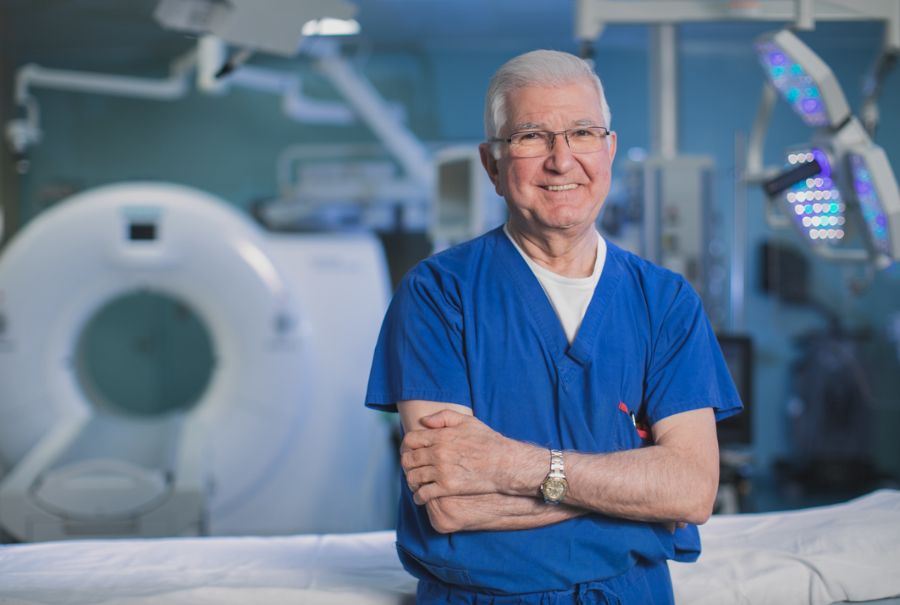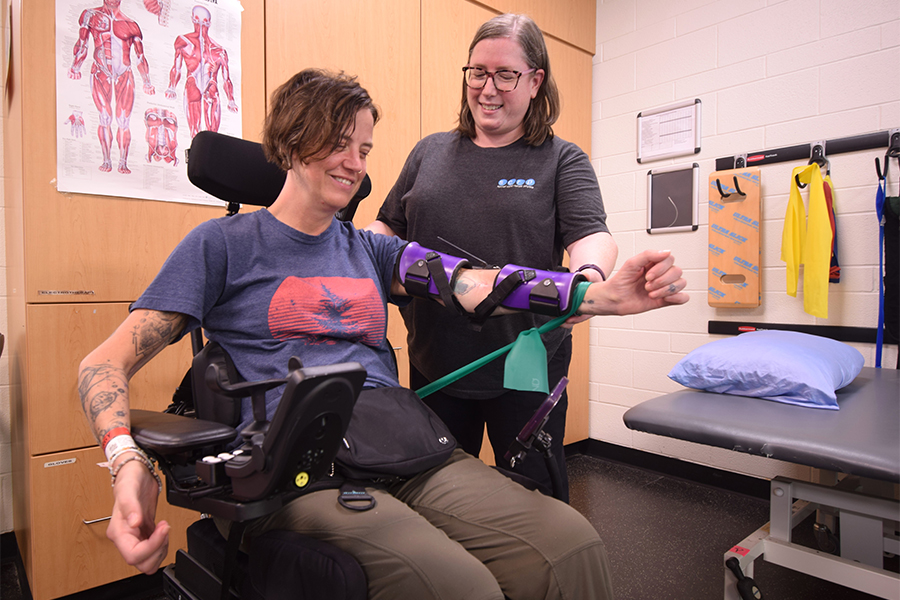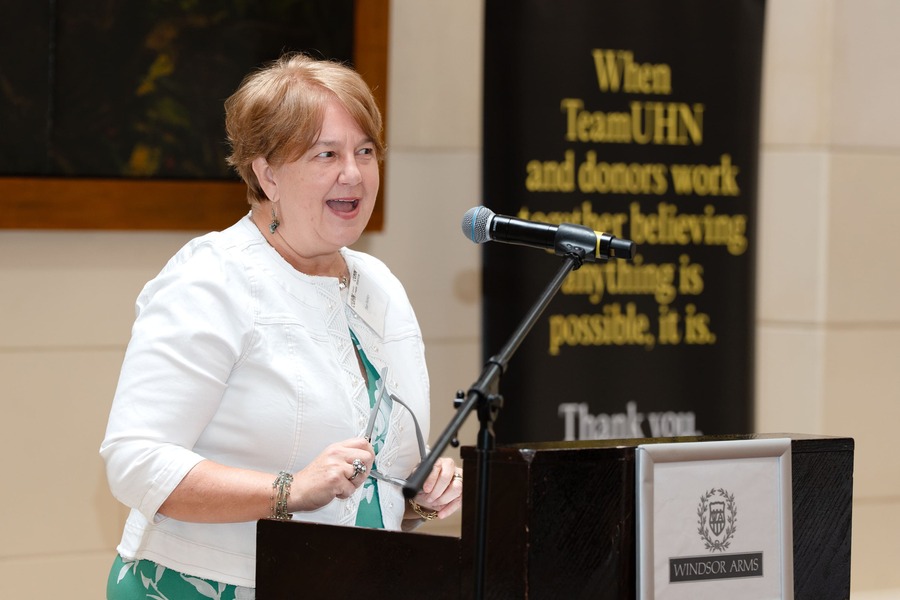L to R: Alaina Cyr (she/they), resource development specialist, Patient Education & Engagement and co-chair, UHN 2SLGBTQIA+ Steering Committee; Cynthia Larche (she/her), workshop co-creator within the Centre for Advancing Collaborative Healthcare & Education (CACHE) and registered nursing student at the University of Toronto; Mohammad Salhia (he/him), Director, Continuing Education and International, The Michener Institute of Education at UHN; Dr. Louis Liu (he/him), Division Head, Gastroenterology and Hepatology, UHN & Sinai Health System
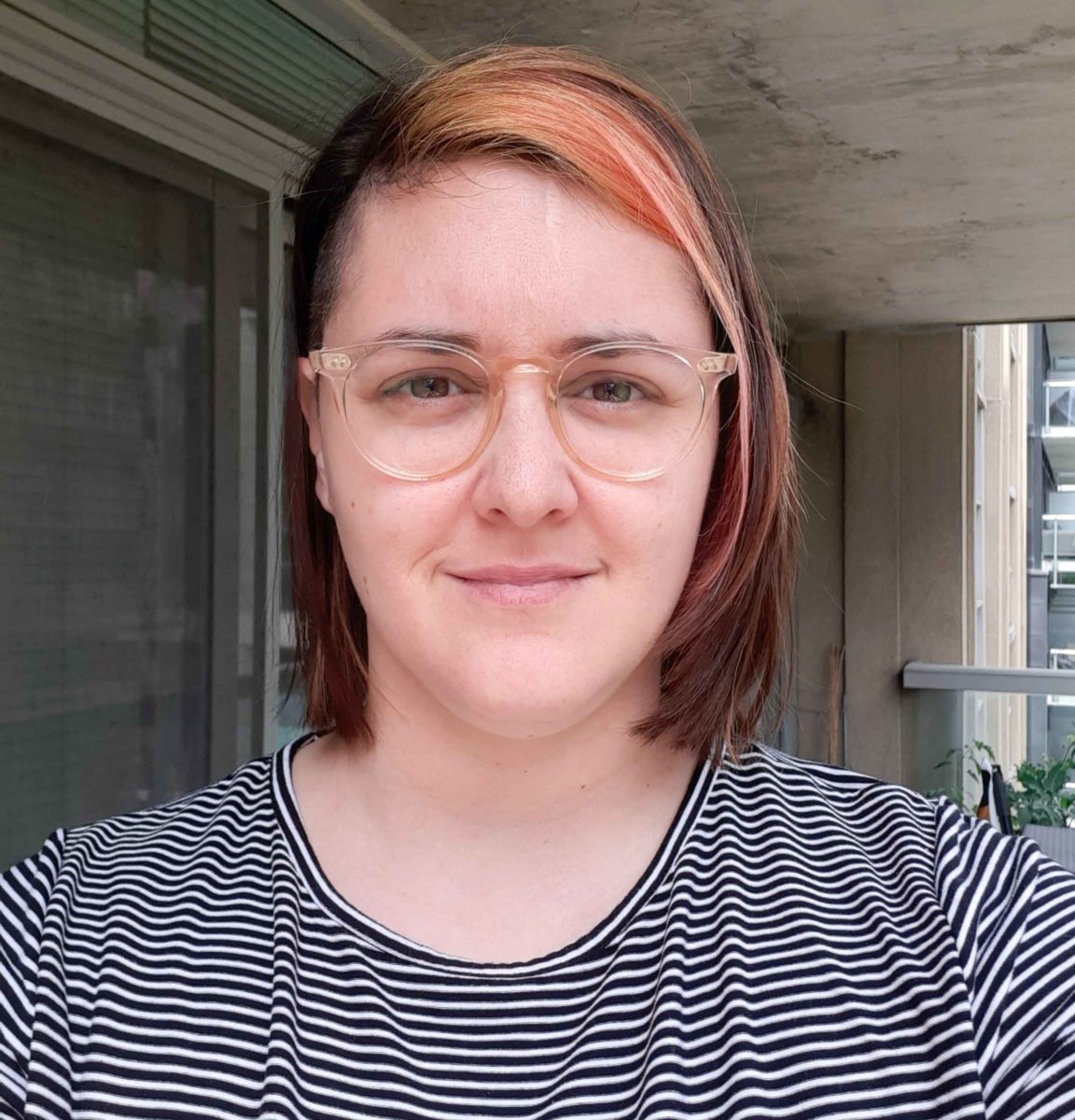
Following the first and second parts in a series, four members of TeamUHN’s 2SLGBTQIA+ community share their thoughts on Pride.
What does Pride mean to you?
AC: Pride is about experiencing self- and community-love. When I was less comfortable with my queerness, seeing other people celebrate their queer joy made it a little easier for me to accept myself. Seeing queer people come together in that joy reassured me that I would not be alone when I was ready to live more authentically.
CL: To me, Pride means being your authentic self and respecting people’s identities and experiences of attraction. Pride Month is merely a time where the 2SLGBTQIA+ community is celebrated; respect and equitable health care, in contrast, are timeless. Equitable care is high quality, appropriate, timely, accessible and comprehensive. Even today, the 2SLGBTQIA+ community often does not receive equitable care.
LL: While we were celebrating Pride in unity with the Parade in Toronto this year, Turkish police detained hundreds of demonstrators of the banned Pride March in Istanbul, and around the same time a deadly shooting in Oslo, Norway led to the cancellation of their annual Pride Parade. Pride not only reminds us of the importance of inclusiveness and diversity, but it is also a time to speak out for 2SLGBTQIA+ equality.
MS: Being your authentic self with confidence and creating space for others to do the same.
How do you celebrate Pride at UHN?
AC: I celebrate Pride at UHN all year round by actively participating in (and now co-chairing) the 2SLGBTQIA+ Steering Committee and joining related working groups when the opportunities arise. I’m fortunate that this work often ties into or complements my daily responsibilities, and that I have the support of my leaders to do this work. I also wear my pronouns, Pride pins and rainbow lanyard throughout the whole year. It’s important these symbols stay visible beyond Pride Month.
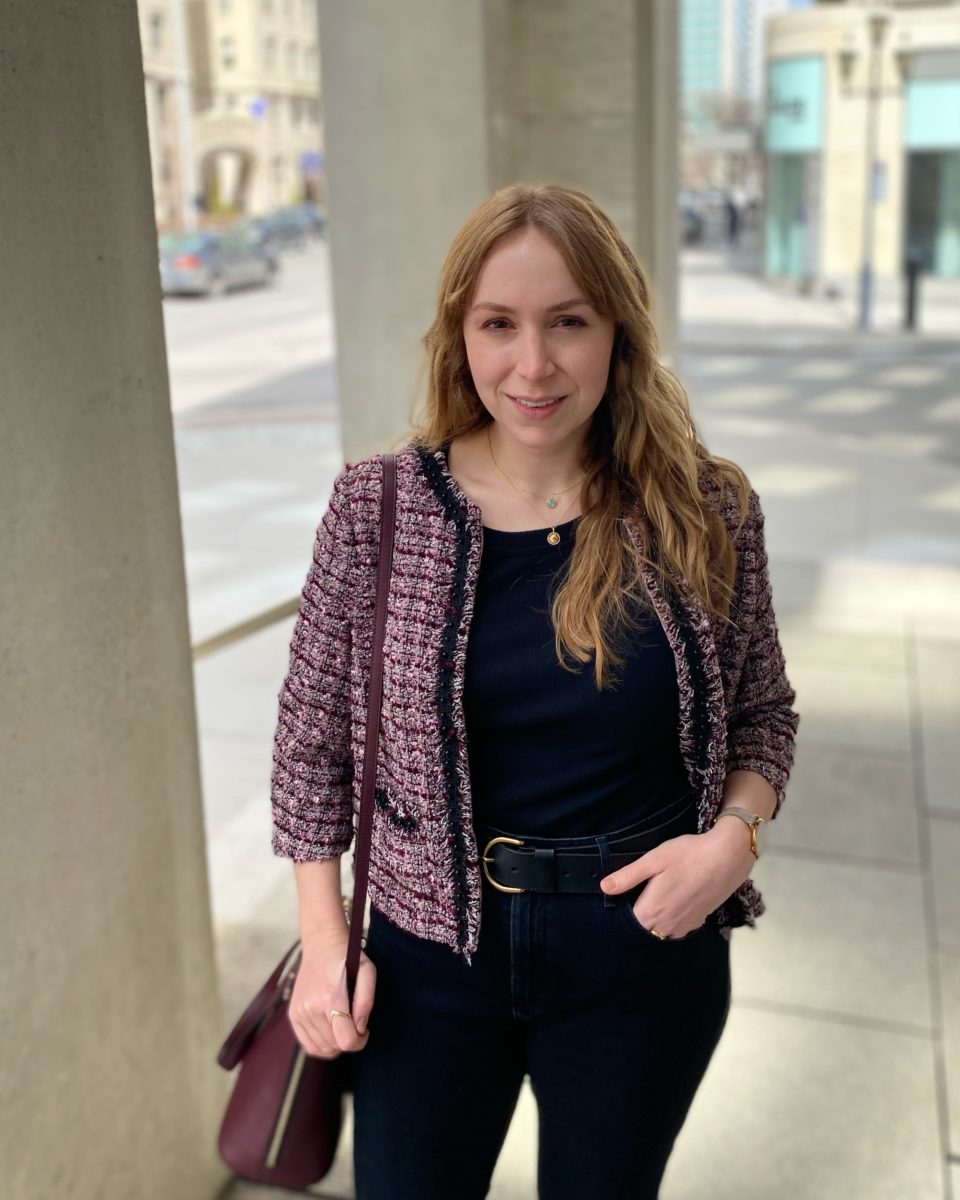
CL: As a proud member of the 2SLGBTQIA+ community, I celebrate Pride by learning from community members who are engaging in advocacy and education about our vibrant community and its experiences of preventable health care inequity. I support the 2SLGBTQIA+ community by educating learners in health science studies at the University of Toronto about how to deliver equitable health care for 2SLGBTQIA+ patients. I also challenge myself to learn more about how I can provide the most equitable care.
LL: Participating in this feature is the most celebratory Pride activity I have ever participated in at UHN. I will look for future opportunities in other social, mentorship and advocacy capacities.
MS: I celebrate it every day by being myself and signalling to others that they can be that way, too. It’s important to have an annual celebration, and even more important to recognize, acknowledge and honour people for who they are every day.
How important is it to you that your workplace acknowledges Pride?
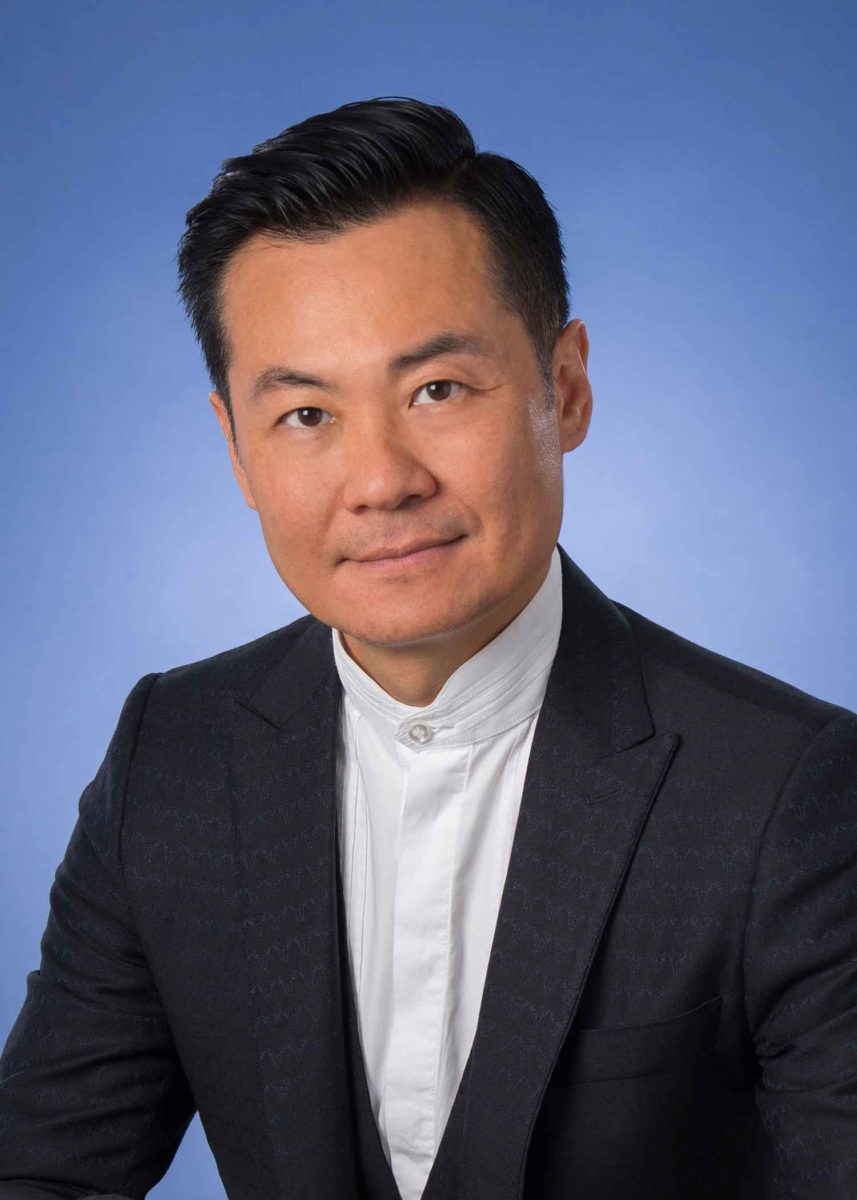
AC: While acknowledging Pride Month is a nice gesture, it’s more important to me that my workplace is respectful, supportive and safe for all queer people and all their intersecting identities. Acknowledging Pride Month is easy. It becomes performative, at best, when that acknowledgment isn’t backed by action throughout the year. I want to see all levels of leadership actively and publicly denounce discrimination against transgender (including non-binary) and intersex people. I want to see restorative justice for queer patients, families, staff and learners who are abused or intentionally harmed by others at my workplace. I want to see proper funding and resourcing for inclusion, equity and diversity initiatives that aim to make UHN a safer space, especially for queer people who are Black, Indigenous and disabled.
CL: It is essential for workplaces to foster a respectful and brave space for workers and service users, no matter who they are, at all times. I expect workplaces to acknowledge Pride but I most admire workplaces that sustain equitable, diverse and inclusive practices all year long.
LL: It is very important for our workplace to acknowledge Pride and to create a safe space for staff, learners and patients.
MS: It’s essential. Pride is about celebrating our uniqueness and our sameness. Pride is many things – it’s a celebration, a movement, a reminder, a shared space, a community and an invitation to create community.
What is your favourite memory of celebrating Pride at UHN?
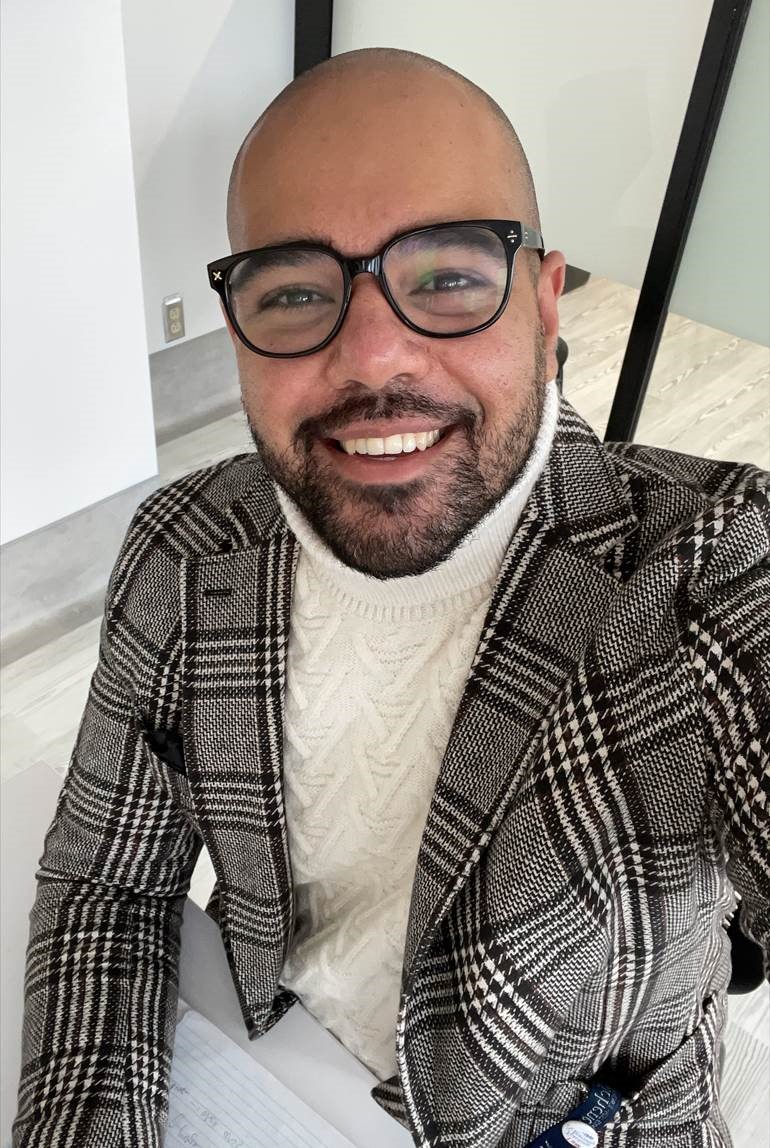
MS: Last year, I wished my team “Happy Pride” and remembered saying that it was an important time for me and members of my community. It was the first time I openly declared or alluded to my identity in the context of my broader team at work. It was a great feeling. I had lots of people reach out to thank me.
